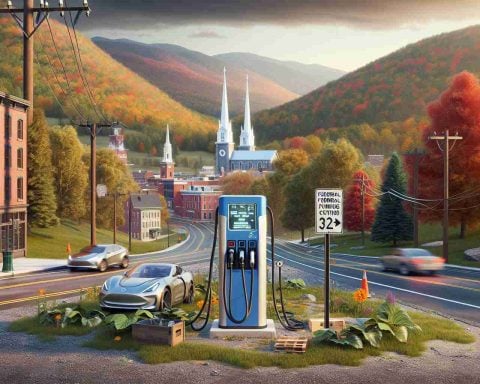- Hyundai is set to revolutionize the EV market with its all-solid-state “Dream” batteries, offering improved range and faster charging.
- The official unveiling of their EV battery pilot line is scheduled for March at a new research center in Uiwang, South Korea.
- Hyundai plans to invest over $9 billion in battery technology over the next decade to diversify its battery offerings.
- Full-scale production of the new batteries will begin soon, but the first prototypes are expected to be available by late 2025.
- Transitioning to in-house battery production could give Hyundai a competitive edge in the EV market.
- Hyundai aims to lead the EV revolution, especially with ongoing advancements in models like the IONIQ 5.
Hyundai is on the brink of transforming the electric vehicle (EV) landscape with its highly anticipated all-solid-state batteries, dubbed the “Dream” batteries. These cutting-edge powerhouses promise an electrifying combination of longer range, lightning-fast charging, and unmatched energy density, redefining the way we think about driving.
This March, Hyundai will take the wraps off its all-solid-state EV battery pilot line during the highly anticipated opening ceremony of its new research center in Uiwang, South Korea. Industry leaders and major players like GM will witness history as Hyundai unveils technology that could place it at the forefront of the EV battery race.
Investing over $9 billion over the next decade, Hyundai isn’t just stopping at these innovative batteries. With plans to develop diverse battery types—including lithium-iron-phosphate (LFP) and Nickel Cobalt Manganese (NCM)—Hyundai aims to cater to all EV segments and elevate its manufacturing game.
Though full-scale production of the all-solid-state batteries is set to begin next month, the first prototypes won’t hit the streets until late 2025. This new tech, often revered for its potential to enhance safety and performance, faces challenges in stability and production efficiency.
Hyundai’s venture into in-house battery production could change the game, allowing the company to gain a significant competitive edge as it pivots from relying on suppliers. With models like the IONIQ 5 and the upcoming eM platform, Hyundai is not just participating in the EV revolution; it’s gearing up to lead it. Get ready; the future of driving is charging ahead!
Are Dream Batteries the Future of Electric Vehicles?
Hyundai is poised to revolutionize the electric vehicle (EV) market with its all-solid-state batteries, known as the “Dream” batteries. These state-of-the-art power sources promise a blend of longer driving ranges, rapid charging capabilities, and superior energy density, positioning Hyundai as a potential leader in the EV landscape.
Key Innovations and Features
– Longer Range and Faster Charging: The solid-state batteries are anticipated to deliver significantly longer ranges on a single charge and allow for quicker charging times compared to conventional lithium-ion batteries.
– Enhanced Safety and Stability: While these batteries present an opportunity for improved safety standards, challenges regarding stability and production efficiency must be addressed.
– Diverse Battery Types: Hyundai’s overarching strategy also includes investment in various battery chemistries like lithium-iron-phosphate (LFP) and Nickel Cobalt Manganese (NCM), ensuring flexibility across different vehicle segments.
Market Forecasts
Hyundai has committed to investing over $9 billion in battery technology over the next decade. With a clear vision and substantial investment, Hyundai’s ability to innovate and produce in-house could potentially reshape market dynamics, giving it a formidable edge over competitors.
Limitations and Challenges
– Production Timeline: Full-scale production is scheduled to begin soon, but the initial prototypes are not expected to be available until late 2025.
– Scaling Production: The transition from prototypes to mass production poses significant challenges in terms of manufacturing processes and technology alignment.
Insights and Trends
As the automotive industry moves towards integrating more sustainable and efficient power sources, Hyundai’s developments may catalyze larger shifts in consumer adoption of EVs. This trend aligns with global sustainability goals and the increasing pressure for automotive companies to reduce their carbon footprint.
Most Important Questions
1. What are the benefits of all-solid-state batteries compared to traditional batteries?
All-solid-state batteries offer higher energy density, reduced risk of fire, and longer cycles, which can result in more efficient and safer EVs.
2. How will Hyundai’s investment in battery technology impact the EV market?
Hyundai’s commitment to in-house battery production may disrupt the current supply chain dynamics, as the company could lower costs and reduce dependency on external suppliers, giving it a competitive advantage.
3. What challenges does Hyundai face in bringing the Dream batteries to market?
The primary challenges include ensuring production efficiency and stability, scaling manufacturing, and overcoming technological barriers associated with solid-state battery chemistry.
For further details on Hyundai’s innovations in the EV sector, check out Hyundai’s official website.













